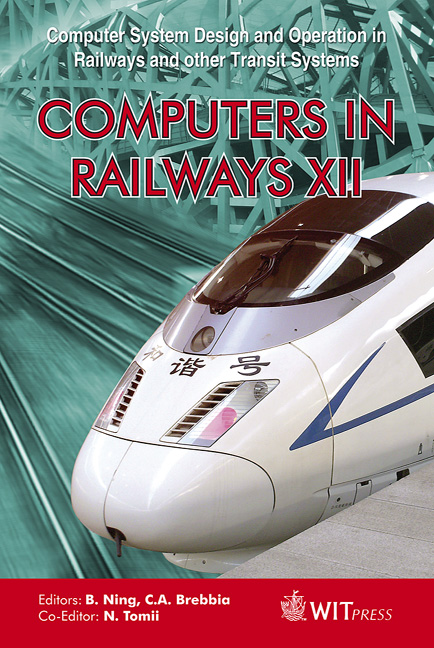State-based Risk Frequency Estimation Of A Rail Traffic Signal System
Price
Free (open access)
Transaction
Volume
114
Pages
9
Page Range
805 - 813
Published
2010
Size
1073 kb
Paper DOI
10.2495/CR100731
Copyright
WIT Press
Author(s)
Y. Zhang, J. Guo & L. Liu
Abstract
The rail traffic signal system is a safety-related system. According to the strict requirement of safety, the use of international safety standards it requires in order to carry out the systemic safety assessment. Risk frequency estimation plays a key role in the process of risk-based safety assessment. Thus in this paper, firstly, the existing risk frequency analysis methods are studied, then a statebased fault tree model based on the original fault tree model and Markov stochastic process model is proposed. After that, the state-based risk frequency estimation flow of the rail traffic signal system is summarized. Lastly, we give an example of the micro-computerized automatic block system between railway stations with the wrong cancelling block. Then the state-based fault tree model is established and its risk frequency quantitatively calculated. The method can analyse the risk frequency of rail traffic signal systems scientifically and accurately and solve the quantitative analysis issues of risk frequency in dynamic random systems effectively. Keywords: state-based, risk frequency, rail traffic signal system, fault tree model, Markov stochastic process model. 1 Introduction The rail traffic signal system is a safety-related system [1] and it takes charge of the safety of rail traffic system operation. The traditional method to guarantee the safety of the rail traffic signal system is based on technique specifications and safety design, which have played a positive role. However, with the development of high-speed railways and the microelectronics, computers, communications and other modern information technology that is widely used, the traditional
Keywords
state-based, risk frequency, rail traffic signal system, fault treemodel, Markov stochastic process model





